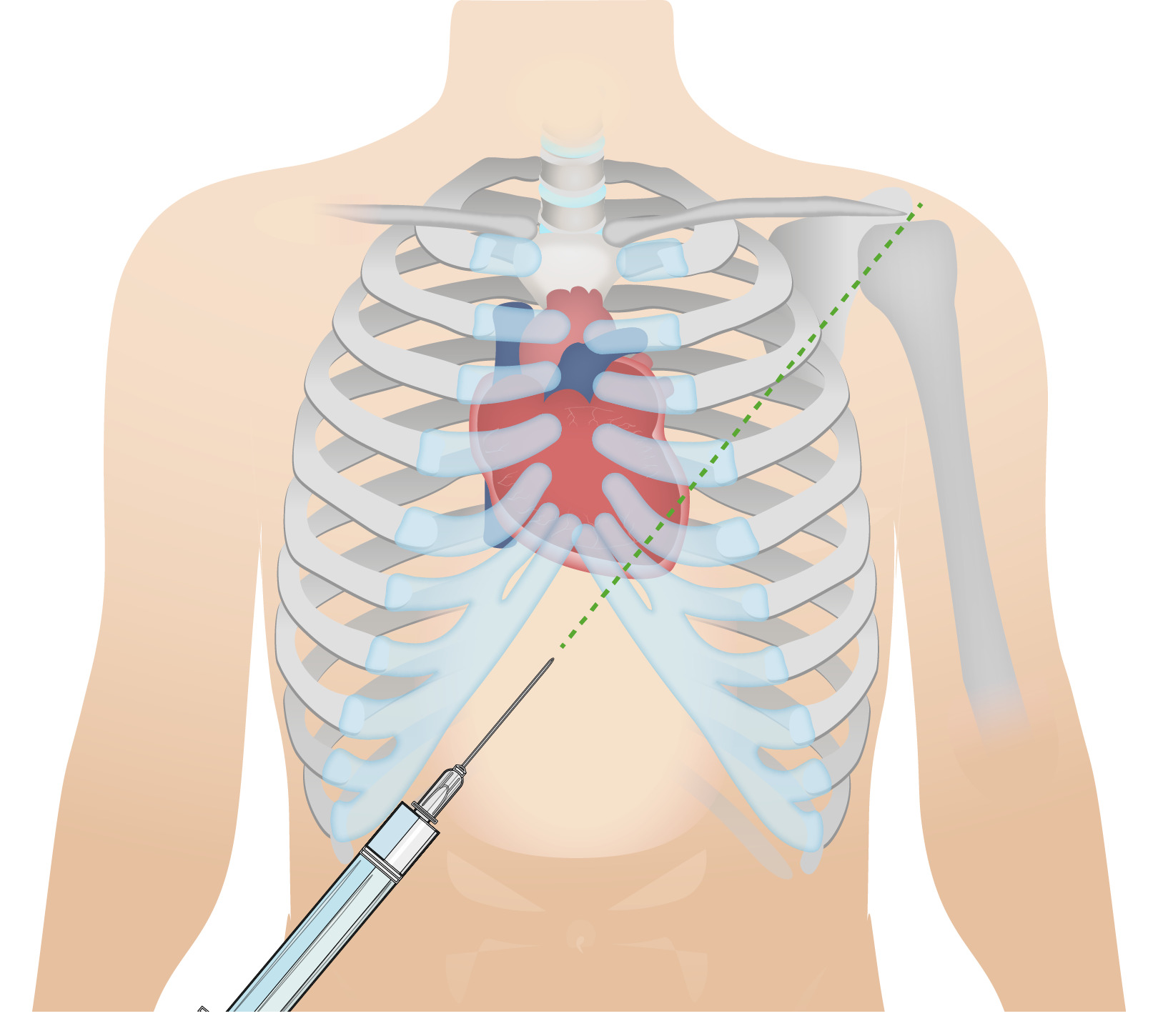Playlist
Show Playlist
Hide Playlist
Cardiac Case: 54-year-old Woman with Breast Cancer and Dyspnea
-
Cardiac Case 54-year-old Woman with Breast Cancer and Dyspnea.pdf
-
Reference List Cardiology.pdf
-
Download Lecture Overview
00:00 This is a 54-year-old woman who's known to have metastatic breast cancer. 00:06 She developed breast cancer 6 years ago and developed widespread metastasis in the bones and in the lung. 00:14 She comes to the emergency department because during the last 3 weeks, she's noted that she's become increasingly short of breath at rest or with minimal exertion and she also describes severe fatigue. 00:27 Her personal history was a mastectomy, radiotheraphy, and chemotherapy for her breast cancer. 00:32 On physical exam, she has no fever, her blood pressure's quite low 86/49 mmHg and her heart rate is quite high at a 120/min and heart beats a very soft and difficult to hear. 00:47 So what's critical here? Number one, it's an oncology patient with known spread of her disease. 00:53 She's markedly short of breath. She's also very fatigued. 00:57 She has a low blood pressure and a fast heart rate. And her heart is hard to hear. 01:03 The heart sounds are muffled. 01:05 Diagnostic options: probably number one would be echocardiography. 01:09 What are we concerned about? We're concerned that she now has metastasis in the heart or in the pericardium causing fluid to accumulate in the pericardial space. 01:21 Usually hemorrhagic fluid if there are metastases and this can put pressure on the heart and cause decreased pumping of the heart because of the high pressure of the fluid basically, putting a clamp on the heart and that's called 'cardiac tamponade'. 01:36 And that's exactly what we see. Here we see a single echo picture. 01:41 So, first of all, what you see, you're looking at the top down so you see in the right ventricle on top and what you see is the PE, is a pericardial effusion. 01:55 You see the right atrium, the left ventricle and the left atrium and there's squeezing going on of the right ventricle. 02:03 You can see with the little arrow right ventricular compression. 02:06 That squeezing is from the high level of pressure in the pericardial space from the pericardial effusion. 02:13 And so, this is tamponade with right atrial and right ventricular compression and collapse. 02:20 And so what are our diagnostic options? Well, is this due to sepsis with bacteria in the bloodstream? I don't think so. 02:29 There's no fever, there's no white count. It's certainly not a myocardial infarct. 02:33 We don't see any changes on the cardiogram. 02:35 The patients not dehydrated. She's been drinking fine. 02:39 This is pericardial tamponade secondary to a pericardial effusion that's resulting from metastases to the heart. 02:47 What happens with the metastases is that they cause increased pericardial fluid often with blood in it. 02:55 This leads to high pressure in that fluid around the heart leading to squeezing of the heart and cardiac tamponade. 03:02 That means lower cardiac output. 03:05 The patient has dyspnea and fatigue and the treatment is to drain the fluid in the cath lab. 03:11 Often, we leave a catheter in there to continue to drain the fluid and usually, the pericardium fibrosis down and this doesn't recur but it can recur requiring further episodes of pericardiocentesis. 03:24 This is very bad news. 03:26 Patients who have cardiac metastasis or pericardium metastasis rarely survive more than 68 months. Very bad news.
About the Lecture
The lecture Cardiac Case: 54-year-old Woman with Breast Cancer and Dyspnea by Joseph Alpert, MD is from the course Cardiovascular Cases.
Included Quiz Questions
Which of the following conditions is associated with right atrial wall collapse on echocardiography?
- Cardiac tamponade
- Sarcoidosis
- Hemochromatosis
- Adenovirus infection
- Kawasaki's disease
Cardiac tamponade secondary to metastatic breast cancer should be managed by which of the following?
- Pericardiocentesis
- Chemotherapy
- Radiotherapy
- Mastectomy
- Immunotherapy
Customer reviews
5,0 of 5 stars
| 5 Stars |
|
5 |
| 4 Stars |
|
0 |
| 3 Stars |
|
0 |
| 2 Stars |
|
0 |
| 1 Star |
|
0 |





